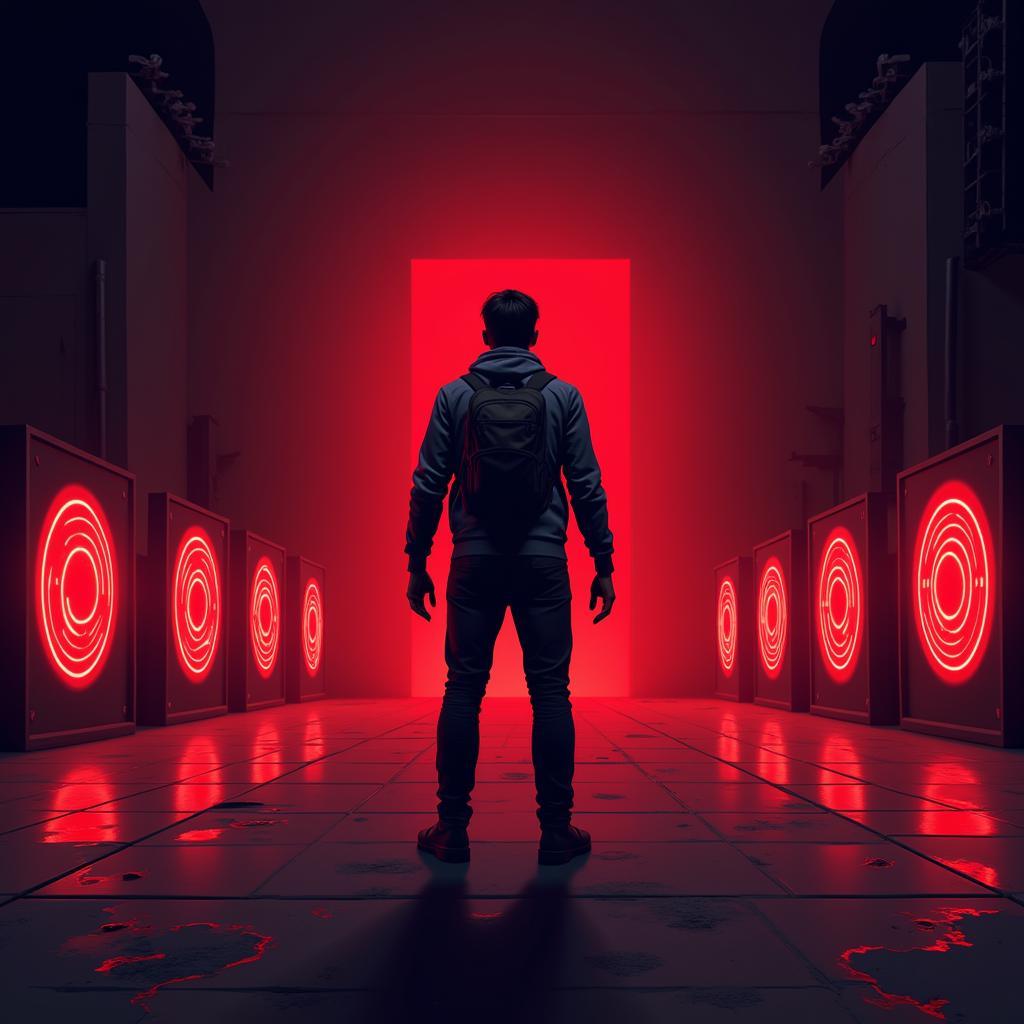The term “Hot Lock” frequently pops up in gaming communities, often sparking debates and discussions. But what exactly does it mean and why does it matter? This article delves into the intricacies of hot lock, exploring its implications and how it can impact your gaming experience.
What is Hot Lock in Gaming?
In essence, “hot lock” refers to a perceived mechanic in video games where the game artificially adjusts the difficulty level based on the player’s performance. This can manifest in various ways, such as increasing enemy accuracy, health, or damage output, while simultaneously making the player’s character more vulnerable or less effective.
Imagine breezing through a level, effortlessly defeating opponents. Suddenly, the tide turns. Enemies that were once easily dispatched become bullet sponges, their attacks landing with pinpoint precision. Your own shots seem to miss their mark, and your character feels sluggish and unresponsive. This sudden shift in difficulty, often experienced after a streak of success, is what many gamers associate with the concept of “hot lock.”
 Hot Lock Illustration
Hot Lock Illustration
The Controversy Surrounding Hot Lock
The existence of hot lock is a hotly debated topic within gaming circles. While some players believe it’s a deliberate mechanic employed by developers to regulate gameplay and create artificial challenge, others argue that it’s simply a matter of perception or confirmation bias.
Those who believe in hot lock often cite anecdotal evidence, such as experiencing a sudden spike in difficulty after winning several matches in a row or noticing patterns in enemy behavior that seem designed to punish skilled play. They argue that hot lock can feel unfair, especially in competitive games where it can create an uneven playing field.
On the other hand, skeptics attribute these experiences to factors like random chance, confirmation bias, or simply improved enemy AI adapting to the player’s tactics. They point out that game developers rarely, if ever, publicly acknowledge implementing hot lock mechanics, and there’s often a lack of concrete evidence to support its existence.
The Impact of Hot Lock on Gameplay
Regardless of whether hot lock is a real mechanic or a perceived phenomenon, its impact on the player experience is undeniable. The belief that the game is actively working against them can lead to feelings of frustration, helplessness, and even anger. This can be particularly detrimental in online multiplayer games where maintaining a positive mindset and focusing on strategy are crucial for success.
For some players, the perception of hot lock can create a sense of paranoia, making them question every enemy encounter and attributing any setbacks to the game’s manipulation rather than their own mistakes. This can lead to a vicious cycle of negative self-talk and diminished enjoyment of the game.
Separating Fact from Fiction: How to Approach Hot Lock
So, how can gamers navigate the murky waters of hot lock? The key lies in maintaining a balanced perspective and approaching the issue with a critical eye.
- Acknowledge the Possibility of Bias: Remember that our brains are wired to find patterns, even when they don’t exist. It’s easy to fall into the trap of confirmation bias, noticing only the instances that support our existing beliefs while ignoring evidence to the contrary.
- Focus on What You Can Control: Instead of dwelling on factors beyond your control, channel your energy into improving your skills, refining your strategies, and learning from your mistakes.
- Maintain a Positive Mindset: A positive attitude can go a long way in enhancing your gaming experience. Instead of viewing setbacks as evidence of hot lock, treat them as opportunities for growth and learning.
 Gamer Staying Positive
Gamer Staying Positive
Conclusion
The hot lock debate is likely to continue raging on in gaming communities. While its existence remains a subject of speculation, understanding the concept and its potential impact on player perception is crucial for fostering a healthy and enjoyable gaming experience. By approaching the issue with a critical and balanced perspective, gamers can focus on what truly matters: honing their skills, enjoying the game, and connecting with fellow enthusiasts.
FAQ
1. Is hot lock a real mechanic used in games?
There’s no definitive answer, as game developers rarely confirm or deny its existence. It’s likely a combination of perception, confirmation bias, and actual game mechanics.
2. How can I tell if I’m experiencing hot lock?
If you notice a sudden and unexplained increase in difficulty, especially after a winning streak, it could be a sign of hot lock or simply the game’s way of adjusting the challenge.
3. What can I do if I think hot lock is affecting my gameplay?
Focus on improving your skills, learning the game’s mechanics, and maintaining a positive mindset. Don’t dwell on factors beyond your control.
4. Does hot lock only happen in online multiplayer games?
While more commonly discussed in online games, hot lock can be perceived in single-player games as well, particularly those with dynamic difficulty adjustments.
5. Is hot lock always a bad thing?
Some argue that a subtle implementation of difficulty adjustments can keep players engaged and challenged. However, when overly aggressive, it can lead to frustration and a sense of unfairness.
For more discussions and insights on gaming-related topics, check out the forum thot. If you’re looking for great deals on games like Gravity Circuit, be sure to grab a gravity circuit steam key.
Need further assistance?
Contact us at:
Phone Number: 0902476650
Email: [email protected]
Or visit us at: 139 Đ. Võ Văn Kiệt, Hoà Long, Bà Rịa, Bà Rịa – Vũng Tàu, Việt Nam.
Our customer support team is available 24/7 to assist you.





